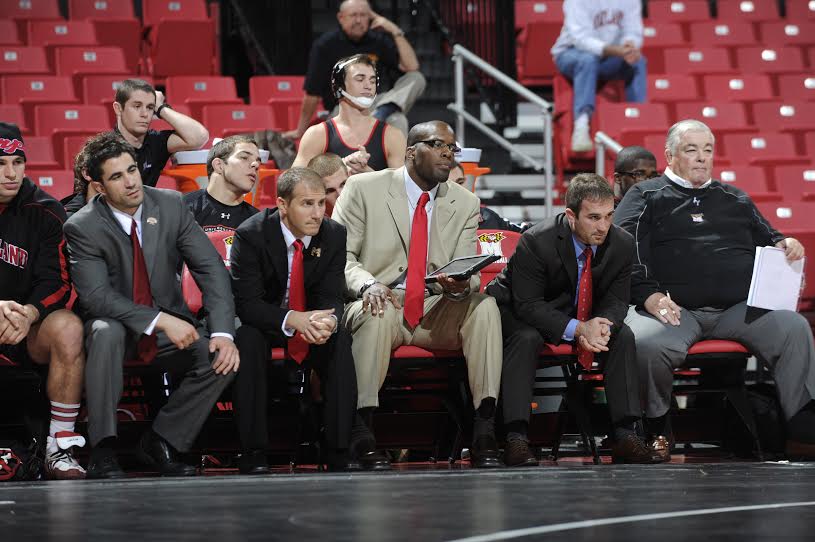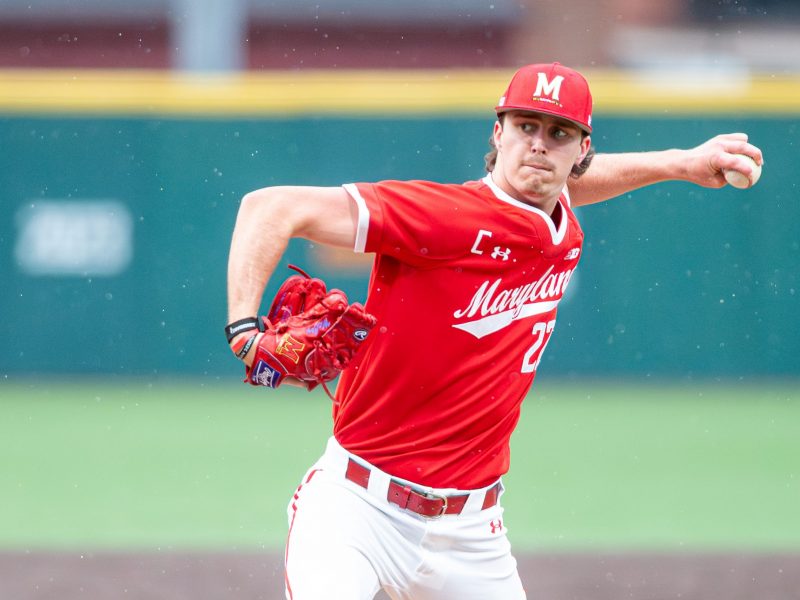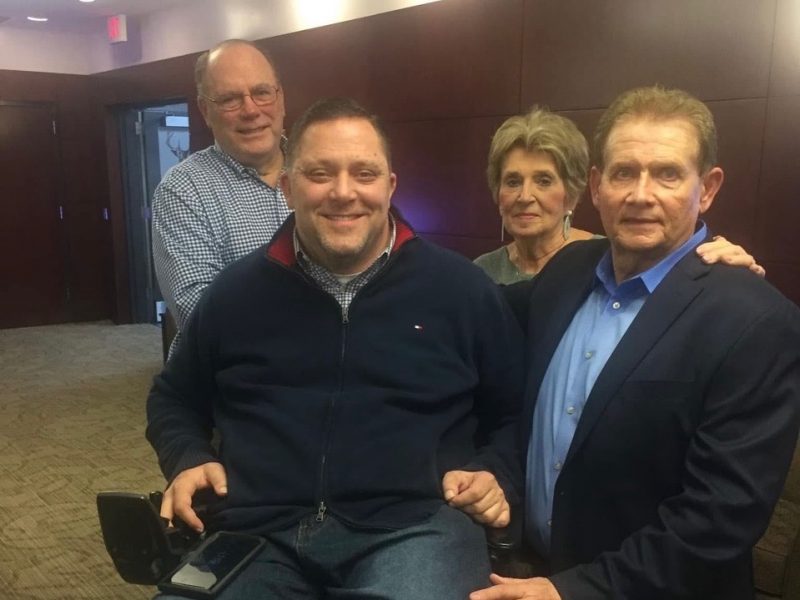The Terrapins wrestling program first came to fruition in 1940, when it competed in the Southern Conference under then-coach Jim Douglas. The program has since undergone a number of changes and has seen seven coaches come through College Park.
But only Kevin Kearns has worked with the five men who have coached since 1947, when the program resumed competition post-World War II.
He knows the Terps’ wrestling history better than anyone alive. And after first joining the Terps in 1966 as a freshman 137-pound, he continues to work as an administrative assistant.
“It’s great for him to sit down and hammer into the younger guys what this program means,” coach Kerry McCoy said. “Sixty years of wrestling knowledge and experience stick with him. He’s seen ACC champs; he’s seen national champs; he’s seen All-Americans. Just his overall experience to be able to talk about what this program is all about and what it’s capable of doing.”
After he finished wrestling at age 29, Kearns still hoped to work with wrestlers at his alma mater. So after having a crab lunch with then-coach John McHugh, Kearns joined the staff as an assistant coach. Kearns would end up spending his first 27 years with the Terps in that role before spending the past nine as an administrative assistant.
Kearns, who is no longer an official member of the coaching staff, is responsible for keeping stats, advising wrestlers and just doing whatever McCoy asks of him. But his experiences on the mat and in life provide the Terps with a unique perspective.
In 1972-73, Kearns competed for the Baltimore Central YMCA and grappled nationwide at 163 pounds. After winning the national YMCA Greco Championship, he would go onto win the New York Athletic Club Greco championship and two South Atlantic AAU freestyle titles.
In college, though, he was forced to put his wrestling career on hold. As the captain in 1970, Kearns had his season cut short after being drafted into the U.S. Army. The Annapolis native would go on to serve with the 101st Airborne Division in Vietnam and Laos.
Before the war, he attended the Recondo School with 44 others. Fourteen of them graduated, and only three survived the war.
“It affected me more than most combat veterans,” Kearns said. “Pretty rough situation. It was nonsense, negligence, to send us in doing things we weren’t meant to do. But it was good for my wrestling when I came back. I was angry.”
After much of his division went home in December 1971, Kearns’ service continued after being considered “mission-essential.” Kearns was transferred to the First Calvary Division to run long-range reconnaissance patrols in Cambodia.
“It’s fun when you get some free time to just go talk to Kearns and hear all the life experiences he’s gone through,” 141-pound Billy Rappo said. “He’s been through literally everything. It’s pretty cool and interesting to hear from him.”
Even before his war experiences, Kearns struggled with his grades while at this university. After graduating from an all-male Catholic school and growing up in a military family, Kearns said he went out regularly, picking up girls and consistently missing classes in the process.
Kearns was kicked out of the university twice, and 70 credits into his degree his GPA was at a 1.1. But with that in his past, he tries to use his own experiences to explain to the wrestlers that even after making mistakes, the future can remain bright.
“He’s seen ups and downs; he can give you so much advice,” 149-pound Shyheim Brown said. “You’ve just got to take that and run with it.”
Within the Terps community, the Kevin R. Kearns Award has been given “to the senior wrestler who has contributed the most to wrestling at the University of Maryland” since its inception in 2004.
On the national level, Kearns achieved the sport’s highest honor in 2013 when he was inducted into the National Wrestling Hall of Fame for his “lifetime service to wrestling.” McCoy would join him a year later.
Despite the honors, Kearns still relishes arriving at Xfinity Center most weekday afternoons for the Terps’ 3:45 p.m. practice. There’s something about helping these wrestlers the same way he was helped.
“I always knew that if I did well in life, I’d help out the younger guys coming up,” Kearns said. “You should always give back. The school was good to me and gave me many chances, I thought I’d do the same and help some of these guys.”



